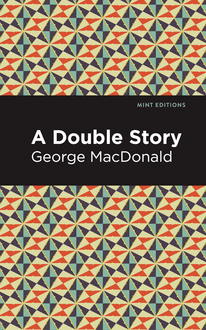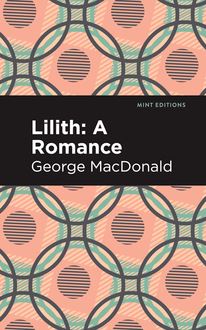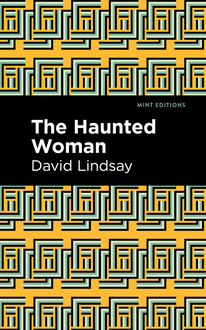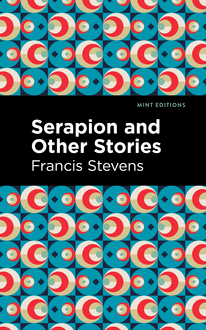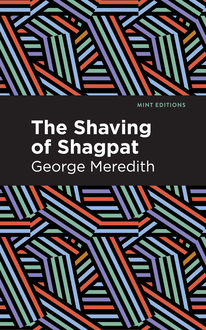-
 Univers
Univers
-
 Ebooks
Ebooks
-
 Livres audio
Livres audio
-
 Presse
Presse
-
 Podcasts
Podcasts
-
 BD
BD
-
 Documents
Documents
-
- Cours
- Révisions
- Ressources pédagogiques
- Sciences de l’éducation
- Manuels scolaires
- Langues
- Travaux de classe
- Annales de BEP
- Etudes supérieures
- Maternelle et primaire
- Fiches de lecture
- Orientation scolaire
- Méthodologie
- Corrigés de devoir
- Annales d’examens et concours
- Annales du bac
- Annales du brevet
- Rapports de stage
La lecture à portée de main
Vous pourrez modifier la taille du texte de cet ouvrage
Découvre YouScribe en t'inscrivant gratuitement
Je m'inscrisDécouvre YouScribe en t'inscrivant gratuitement
Je m'inscrisEn savoir plus
Vous pourrez modifier la taille du texte de cet ouvrage
En savoir plus

Description
While in England visiting the castle of his dear friends, Lady and Lord Ragnall, Allan Quatermain is approached by two men seeking his help. Known for his hunting and exploration skills, the men ask Quatermain to kill an evil spirit that has been roaming their land. Trapped in the body of a massive elephant, the evil spirit has been on a rampage, killing any person in its sight. After he agrees to help hunt the creature, Quatermain journeys to Africa, where he soon becomes involved in a rescue mission after the wife of a friend is kidnapped. As his mission unfolds, the simple rescue operation becomes complicated with shocking discoveries. Now, amid a battle between two tribes with polarizing religions and the danger of the aggressive possessed elephant, Quatermain must brave the African wilderness to slay the spirit and save his friend’s wife before it is too late.
With life-threatening dangers, mystical encounters, a war between tribes, a rescue mission and an isolated civilization, The Ivory Child by H. Rider Haggard is fun and compelling. Themes of mysticism and the vivid portrayal of Colonial African culture, flora, and fauna are paired with a classic Quatermain adventure story, creating an engrossing narrative that both entertains and amazes. First published in 1916, The Ivory Child is a continuation of previous Quatermain adventures. Though The Ivory Child follows the events of Allan and the Holy Flower, this novel can be enjoyed independently. With colorful prose and a fun adventure, The Ivory Child can be enjoyed by a wide audience, and is a classic example of 19th century adventure fiction.
This edition of The Ivory Child by H. Rider Haggard features an eye-catching new cover design and is printed in a font that is both modern and readable. With these accommodations, The Ivory Child caters to a contemporary audience while preserving the original mastery and adventure of H. Rider Haggard’s work.
Sujets
Informations
| Publié par | Mint Editions |
| Date de parution | 09 mars 2021 |
| Nombre de lectures | 0 |
| EAN13 | 9781513278087 |
| Langue | English |
| Poids de l'ouvrage | 2 Mo |
Informations légales : prix de location à la page 0,0500€. Cette information est donnée uniquement à titre indicatif conformément à la législation en vigueur.
Extrait
The Ivory Child
H. Rider Haggard
The Ivory Child was first published in 1916.
This edition published by Mint Editions 2021.
ISBN 9781513277677 | E-ISBN 9781513278087
Published by Mint Editions®
minteditionbooks .com
Publishing Director: Jennifer Newens
Design & Production: Rachel Lopez Metzger
Project Manager: Micaela Clark
Typesetting: Westchester Publishing Services
C ONTENTS I . A LLAN G IVES A S HOOTING L ESSON II . A LLAN M AKES A B ET II . M ISS H OLMES IV . H ARÛT AND M ARÛT V . T HE P LOT VI . T HE B ONA F IDE G OLD M INE VII . L ORD R AGNALL ’ S S TORY VIII . T HE S TART IX . T HE M EETING IN THE D ESERT X . C HARGE ! XI . A LLAN IS C APTURED XII . T HE F IRST C URSE XIII . J ANA XIV . T HE C HASE XV . T HE D WELLER IN THE C AVE XVI . H ANS S TEALS THE K EYS XVII . T HE S ANCTUARY AND THE O ATH XVIII . T HE E MBASSY XIX . A LLAN Q UATERMAIN M ISSES XX . A LLAN W EEPS XXI . H OMEWARDS
I
A LLAN G IVES A S HOOTING L ESSON
N ow I, Allan Quatermain, come to the story of what was, perhaps, one of the strangest of all the adventures which have befallen me in the course of a life that so far can scarcely be called tame or humdrum.
Amongst many other things it tells of the war against the Black Kendah people and the dead of Jana, their elephant god. Often since then I have wondered if this creature was or was not anything more than a mere gigantic beast of the forest. It seems improbable, even impossible, but the reader of future days may judge of this matter for himself.
Also he can form his opinion as to the religion of the White Kendah and their pretensions to a certain degree of magical skill. Of this magic I will make only one remark: If it existed at all, it was by no means infallible. To take a single instance, Har û t and Mar û t were convinced by divination that I, and I only, could kill Jana, which was why they invited me to Kendahland. Yet in the end it was Hans who killed him. Jana nearly killed me!
Now to my tale.
I N ANOTHER HISTORY , CALLED “T HE Holy Flower,” I have told how I came to England with a young gentleman of the name of Scroope, partly to see him safely home after a hunting accident, and partly to try to dispose of a unique orchid for a friend of mine called Brother John by the white people, and Dogeetah by the natives, who was popularly supposed to be mad, but, in fact, was very sane indeed. So sane was he that he pursued what seemed to be an absolutely desperate quest for over twenty years, until, with some humble assistance on my part, he brought it to a curiously successful issue. But all this tale is told in “The Holy Flower,” and I only allude to it here, that is at present, to explain how I came to be in England.
While in this country I stayed for a few days with Scroope, or, rather, with his fianc é e and her people, at a fine house in Essex. (I called it Essex to avoid the place being identified, but really it was one of the neighbouring counties.) During my visit I was taken to see a much finer place, a splendid old castle with brick gateway towers, that had been wonderfully well restored and turned into a most luxurious modern dwelling. Let us call it “Ragnall,” the seat of a baron of that name.
I had heard a good deal about Lord Ragnall, who, according to all accounts, seemed a kind of Admirable Crichton. He was said to be wonderfully handsome, a great scholar—he had taken a double first at college; a great athlete—he had been captain of the Oxford boat at the University race; a very promising speaker who had already made his mark in the House of Lords; a sportsman who had shot tigers and other large game in India; a poet who had published a successful volume of verse under a pseudonym; a good solider until he left the Service; and lastly, a man of enormous wealth, owning, in addition to his estates, several coal mines and an entire town in the north of England.
“Dear me!” I said when the list was finished, “he seems to have been born with a whole case of gold spoons in his mouth. I hope one of them will not choke him,” adding: “Perhaps he will be unlucky in love.”
“That’s just where he is most lucky of all,” answered the young lady to whom I was talking—it was Scroope’s fianc é e, Miss Manners—“for he is engaged to a lady that, I am told, is the loveliest, sweetest, cleverest girl in all England, and they absolutely adore each other.”
“Dear me!” I repeated. “I wonder what Fate has got up its sleeve for Lord Ragnall and his perfect lady-love?”
I was doomed to find out one day.
So it came about that when, on the following morning, I was asked if I would like to see the wonders of Ragnall Castle, I answered “Yes.” Really, however, I wanted to have a look at Lord Ragnall himself, if possible, for the account of his many perfections had impressed the imagination of a poor colonist like myself, who had never found an opportunity of setting his eyes upon a kind of human angel. Human devils I had met in plenty, but never a single angel—at least, of the male sex. Also there was always the possibility that I might get a glimpse of the still more angelic lady to whom he was engaged, whose name, I understood, was the Hon. Miss Holmes. So I said that nothing would please me more than to see this castle.
Thither we drove accordingly through the fine, frosty air, for the month was December. On reaching the castle, Mr. Scroope was told that Lord Ragnall, whom he knew well, was out shooting somewhere in the park, but that, of course, he could show his friend over the place. So we went in, the three of us, for Miss Manners, to whom Scroope was to be married very shortly, had driven us over in her pony carriage. The porter at the gateway towers took us to the main door of the castle and handed us over to another man, whom he addressed as Mr. Savage, whispering to me that he was his lordship’s personal attendant.
I remember the name, because it seemed to me that I had never seen anyone who looked much less savage. In truth, his appearance was that of a duke in disguise, as I imagine dukes to be, for I never set eyes on one. His dress—he wore a black morning cut-away coat—was faultless. His manners were exquisite, polite to the verge of irony, but with a hint of haughty pride in the background. He was handsome also, with a fine nose and a hawk-like eye, while a touch of baldness added to the general effect. His age may have been anything between thirty-five and forty, and the way he deprived me of my hat and stick, to which I strove to cling, showed, I thought, resolution of character. Probably, I reflected to myself, he considers me an unusual sort of person who might damage the pictures and other objects of art with the stick, and not seeing his way how to ask me to give it up without suggesting suspicion, has hit upon the expedient of taking my hat also.
In after days Mr. Samuel Savage informed me that I was quite right in this surmise. He said he thought that, judging from my somewhat unconventional appearance, I might be one of the dangerous class of whom he had been reading in the papers, namely, a “hanarchist.” I write the word as he pronounced it, for here comes the curious thing. This man, so flawless, so well instructed in some respects, had a fault which gave everything away. His h’s were uncertain. Three of them would come quite right, but the fourth, let us say, would be conspicuous either by its utter absence or by its unwanted appearance. He could speak, when describing the Ragnall pictures, in rotund and flowing periods that would scarcely have disgraced the pen of Gibbon. Then suddenly that “h” would appear or disappear, and the illusion was over. It was like a sudden shock of cold water down the back. I never discovered the origin of his family; it was a matter of which he did not speak, perhaps because he was vague about it himself; but if an earl of Norman blood had married a handsome Cockney kitchenmaid of native ability, I can quite imagine that Samuel Savage might have been a child of the union. For the rest he was a good man and a faithful one, for whom I have a high respect.
On this occasion he conducted us round the castle, or, rather, its more public rooms, showing us many treasures and, I should think, at least two hundred pictures by eminent and departed artists, which gave him an opportunity of exhibiting a peculiar, if somewhat erratic, knowledge of history. To tell the truth, I began to wish that it were a little less full in detail, since on a December day those large apartments felt uncommonly cold. Scroope and Miss Manners seemed to keep warm, perhaps with the inward fires of mutual admiration, but as I had no one to admire except Mr. Savage, a temperature of about 35 degrees produced its natural effect upon me.
At length we took a short cut from the large to the little gallery through a warmed and comfortable room, which I understood was Lord Ragnall’s study. Halting for a moment by one of the fires, I observed a picture on the wall, over which a curtain was drawn, and asked Mr. Savage what it might be.
“That, sir,” he replied with a kind of haughty reserve, “is the portrait of her future ladyship, which his lordship keeps for his private heye.”
Miss Manners sniggered, and I said:
“Oh, thank you. What an ill-omened kind of thing to do!”
Then, observing through an open door the hall in which my hat had been taken from me, I lingered and as the others vanished in the little gallery, slipped into it, recovered my belongings, and passed out to the garden, purposing to walk there till I was warm again and Scroope reappeared. While I marched up and down a terrace, on which, I remember, several very cold-looking peacocks were seated, like conscientious birds that knew it was their duty to be ornamental, however low the temperature, I heard some shots fired, apparently in a clump of ilex oaks which grew about five hundred yards away, and reflected to myself that they seemed to be those of a small rifle, not o
-
 Univers
Univers
-
 Ebooks
Ebooks
-
 Livres audio
Livres audio
-
 Presse
Presse
-
 Podcasts
Podcasts
-
 BD
BD
-
 Documents
Documents
-
Jeunesse
-
Littérature
-
Ressources professionnelles
-
Santé et bien-être
-
Savoirs
-
Education
-
Loisirs et hobbies
-
Art, musique et cinéma
-
Actualité et débat de société
-
Jeunesse
-
Littérature
-
Ressources professionnelles
-
Santé et bien-être
-
Savoirs
-
Education
-
Loisirs et hobbies
-
Art, musique et cinéma
-
Actualité et débat de société
-
Actualités
-
Lifestyle
-
Presse jeunesse
-
Presse professionnelle
-
Pratique
-
Presse sportive
-
Presse internationale
-
Culture & Médias
-
Action et Aventures
-
Science-fiction et Fantasy
-
Société
-
Jeunesse
-
Littérature
-
Ressources professionnelles
-
Santé et bien-être
-
Savoirs
-
Education
-
Loisirs et hobbies
-
Art, musique et cinéma
-
Actualité et débat de société
- Cours
- Révisions
- Ressources pédagogiques
- Sciences de l’éducation
- Manuels scolaires
- Langues
- Travaux de classe
- Annales de BEP
- Etudes supérieures
- Maternelle et primaire
- Fiches de lecture
- Orientation scolaire
- Méthodologie
- Corrigés de devoir
- Annales d’examens et concours
- Annales du bac
- Annales du brevet
- Rapports de stage
